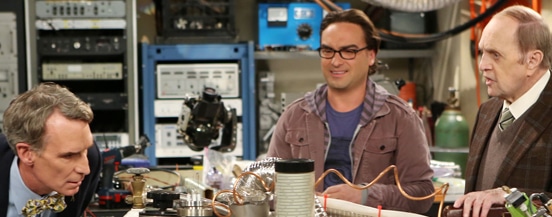(image: nypost.com) Watching television is one of the most appealing activities for 14 to 18 year olds. Some say “all TV is bad TV”, but is this true? Not exactly. Some television series have a positive influence on STEM education. Programs such as Planet Earth have been around for years, but may not catch your students’ attention when looking for an entertaining show to watch. Here are three shows that present STEM subjects in a more interesting way.
1. Human Universe
Presented by Brian Cox, Human Universe is a five-part series dissecting what it means to be human. This series answers the question questions like Who are we?, Are we alone?, and What is our density? Eddie Izzard is featured in this series giving examples on the invention of radar and the examination of the human foot and hand. What is more interesting than the pure existence of human life? Surveys say this hit tv series is influencing students to take up physics in the future.
Alex Cheung, editor of physics.org, said: “There’s no doubt that TV has also played a role. The Big Bang Theory seems to have had a positive effect and the viewing figures for Brian Cox’s series suggest that millions of people in the UK are happy to welcome a physics professor, with a tutorial plan in hand, into their sitting room on a Sunday evening.”
2. The Big Bang Theory
On a more comedic note, The Big Bang Theory is painting a fun and exciting picture of STEM education in students’ minds. The brilliant yet socially-awkward physicists, engineer, and astrophysicist continuously compare simple life events to math equations and science projects. Even though this series maybe goofy, UCLA’s Physics professor Dr. David Saltzberg designs and approves every joke to equation used on the show. The comedy in this show is effective in piquing the interest of students who want to understand the joke in its entirety.
One pupil, Tom Whitmore, 15, from Brighton, acknowledged that Big Bang Theory had contributed to his decision, with a number of classmates, to consider physics at A-level. According to the Higher Education Funding Council for England, applications for physic courses at universities increased by 17% the year that Big Bang Theory aired.
3. The Gadget Show
Shows like The Gadget Show encourage students to brainstorm ideas about how they can use STEM to better the world around us. With only 6 out of 100 high school students electing to get a college degree in STEM, we could definitely use a show that helps inspire students.
Encourage Students Watch and Learn… Then Act!
Let us help capture the inner STEM creativeness of your students with our projects and ideas. For more information Contact Us!



